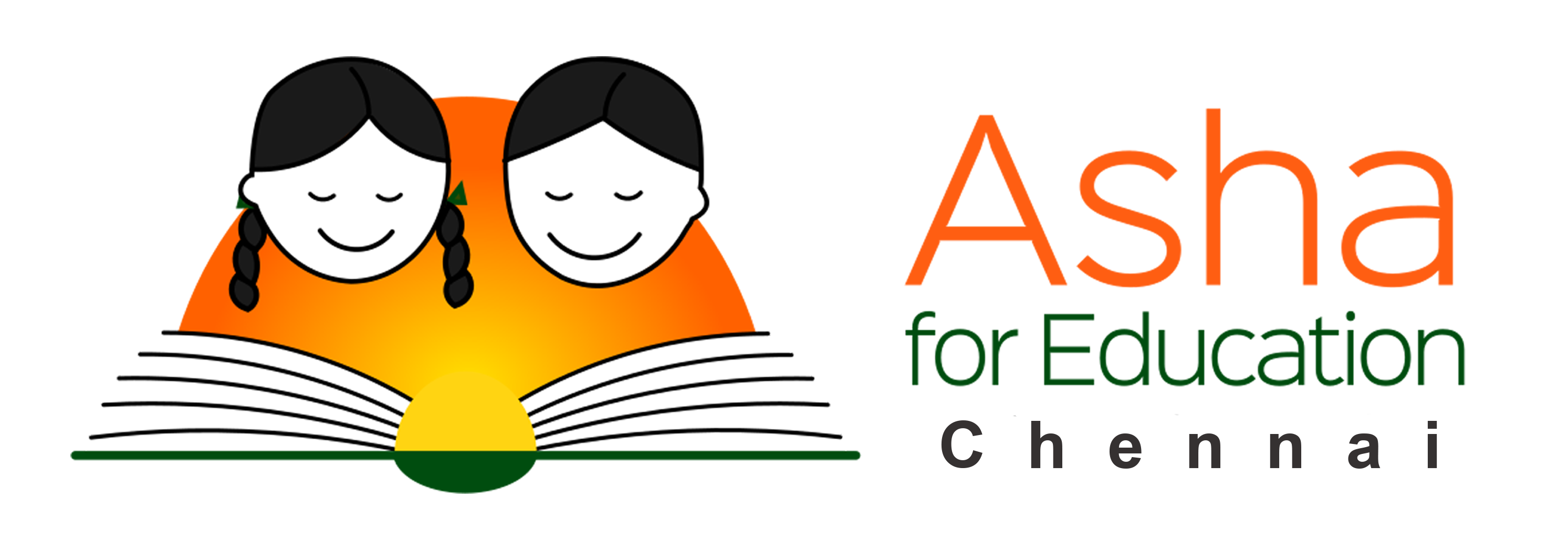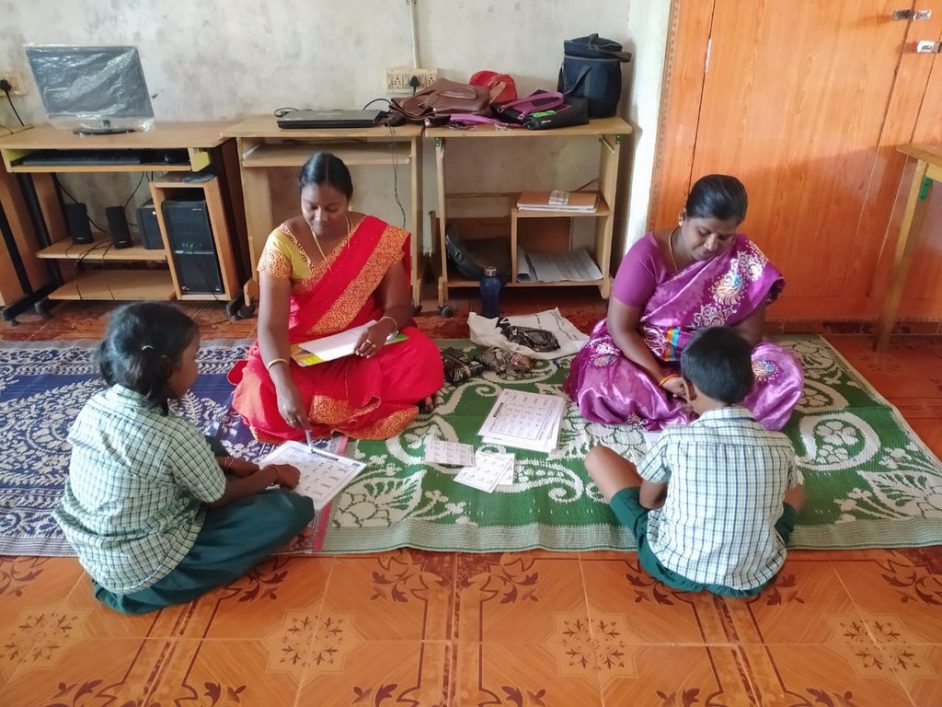Asha Chennai conducted oral assessments in all the 96 supported schools in November 2019.
Background
Asha Chennai has been conducting assessments at all the schools that we support every year for the last several years.
At Asha Chennai we have been supporting about 96 government schools spread across Tamilnadu. With this kind of scale we felt we need to develop metrics to tell us how our projects are doing and start measuring the impact we are having and fine-tune our actions so as to improve the outcome. Towards this end we started conducting assessments starting with one in late 2014-15.
Read about our rationale for the assessments and how we conduct them in 2016 oral assessment report. You can also read the 2017 oral assessment report and 2018 oral assessment report.
Assessments over the years
Asha Chennai started conducting assessments in April 2015. In that 2014-15 academic year as well as 2015-16 academic year we conducted primarily a written assessment and conducted oral assessment only for weaker children. For children who were at grade level we conducted only the written assessments. The first oral assessments were conducted in Nov 2016 in the 2016-17 academic year. The following graph shows the number of schools where the assessments were conducted in the various years.


Both the number of schools and the number of children covered have significantly increased over the years.
Oral Assessments 2018-19
Click here to see all the photos from these assessments.
Asha Chennai conducted the Oral assessments at all the supported government schools. The schools covered are listed below.
Project Glovis Sangamam (Thiruvallur Dist) – 61 Schools.
Project Sangamam (Kancheepuram/Thiruvallur Dists) – 7 Schools.
Project Pearl (Thoothukudi Dist) – 9 Schools.
Project Thulasi (Viluppuram/Thiruvannamalai Dists) – 9 Schools.
Project Poorna Vidhya (Chennai) – 10 Schools.
Total – 96 Schools.
Note we will also be conducting the written assessments at Olcott Memorial School which will bring the total to 97 schools this year.
Like last year this year too the teachers at every project were trained personally by Rajaram and Venkat. Over the years we have evolved a detailed set of instructions that makes the process as objective as possible. This was shared with all the teachers. Several volunteers including Rajaram, Venkat, Paripooranam, Kasturi, Sriram and Bhaskar monitored these assessments at various projects.
Sangamam – Thiruvallur/Kanchipuram
We started the assessments at Thiruvallur. Thiruvallur teachers were trained on Nov 9th. The computer teachers of the project conducted the assessments. They were teamed up into 9 teams. Most of the teams had 2 teachers and jus one team had 3 teachers. Each team conducted the assessments at all the schools that the team teachers were going to to teach computer science. The assessments were conducted from Nov 11th to 19th at the Thiruvallur Schools. Venkat saw the conducting of the assessments on the 11th and then Rajaram saw the assessments at several schools on the 12th and 13th.
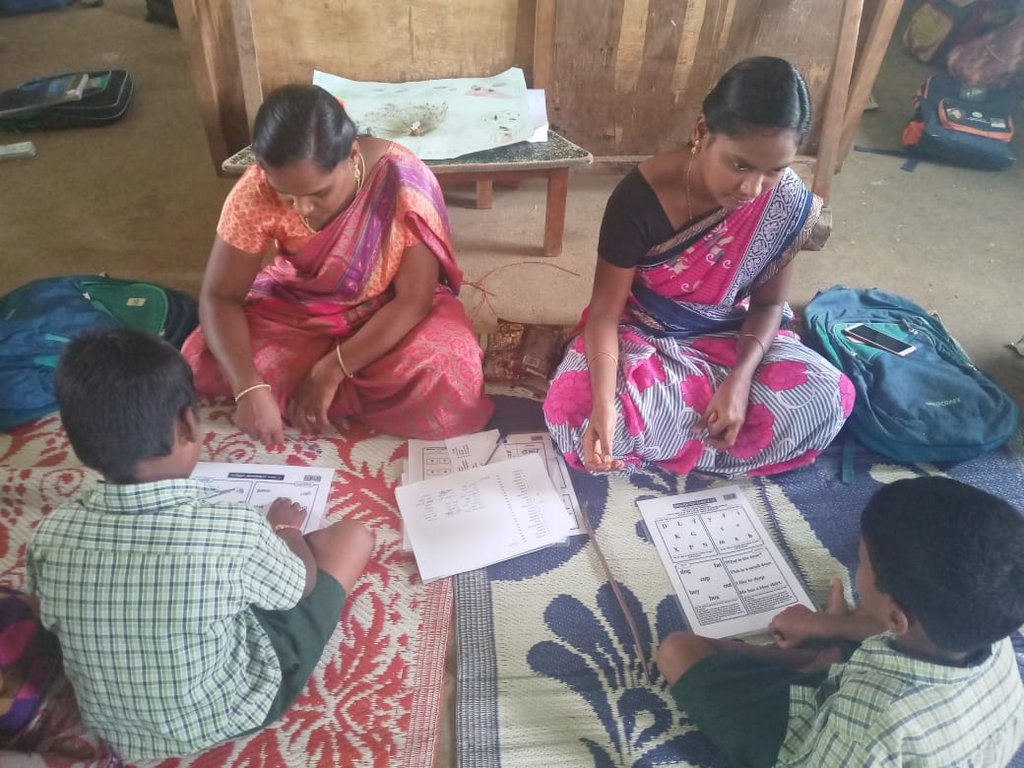
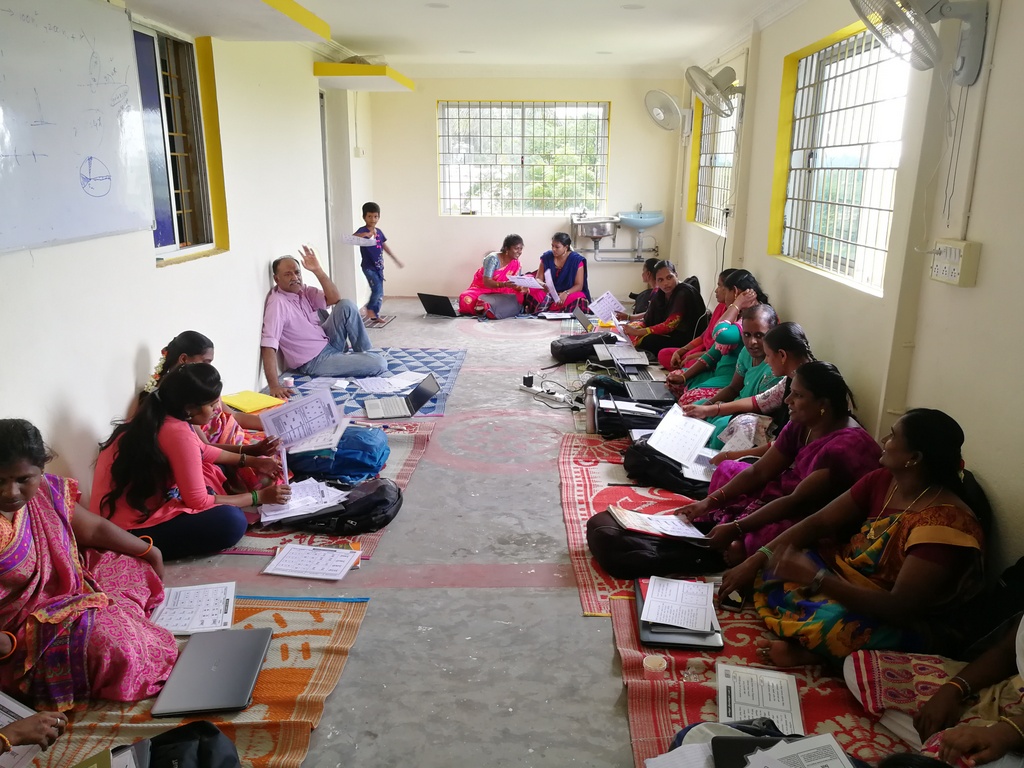
Pearl – Thoothukudi
Bhaskar and Rajaram went to Kayathar and Kovilpatti to train the Pearl teachers on the 15th. All the computer and most of the regular teachers who will participate in the assessments came to our supported school at Karadikulam colony. Rajaram trained the teachers and oversaw the assessment being conducted there. The assessments were then conducted there from 19th to 22nd at two schools on each day and wrapped up.
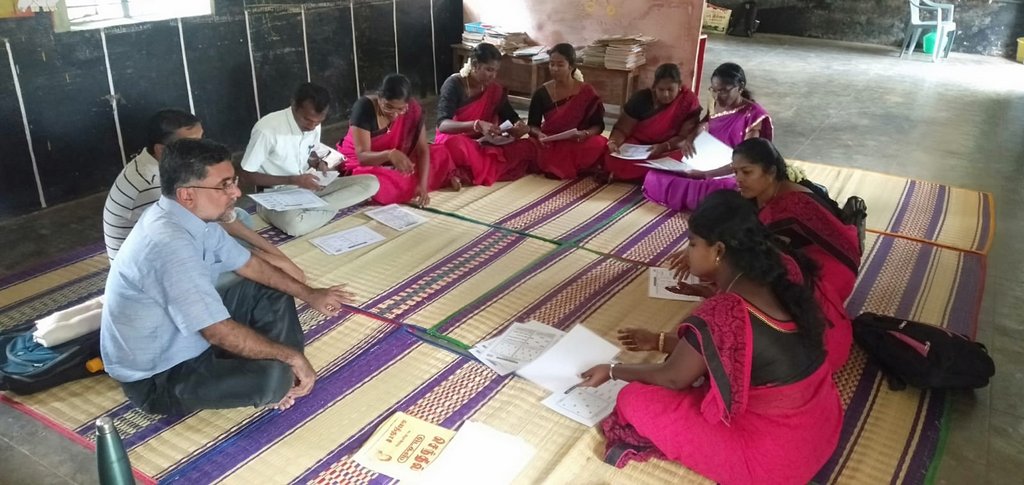
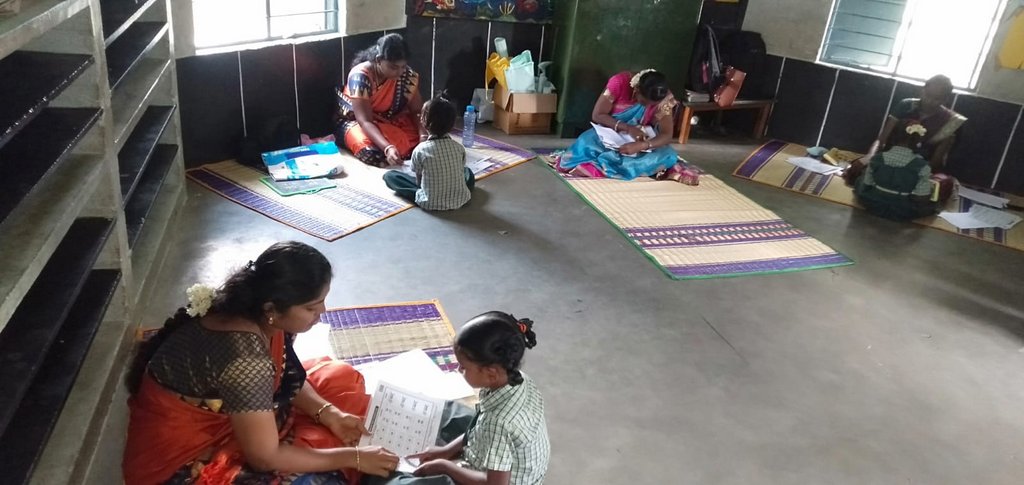
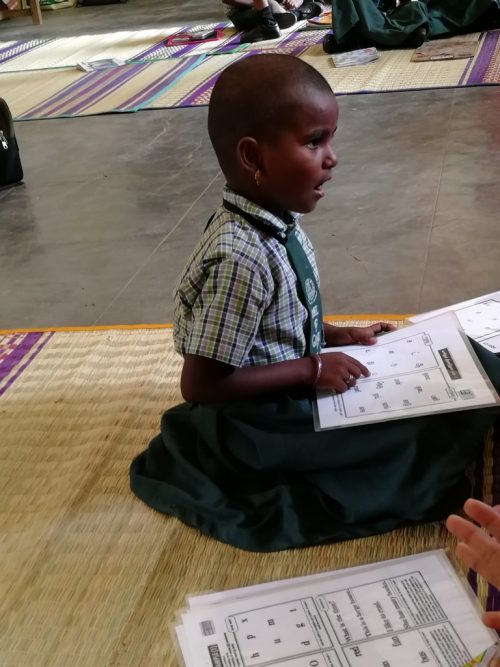
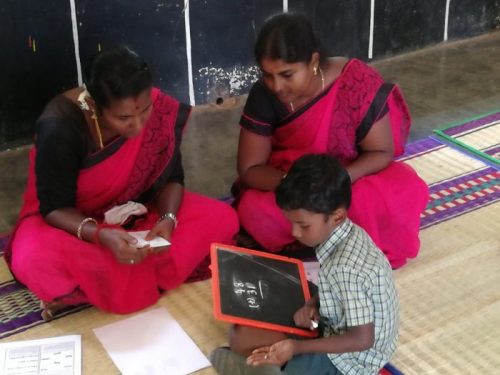
Thulasi – Viluppuram / Thiruvannamalai
Rajaram and Venkat travelled to Project Thulasi on the 19th of Nov. All the teachers assembled at our office at Nallan Pillai Petral for training. The same training was repeated to the Thulasi teachers as well. After that the assessments were held at Nallan Pillai Petral and Gengavaram. Venkat and Rajaram oversaw the assessments at these two places. The assessments at the remaining schools were conducted from the 20th to the 25th.
Poorna Vidhya – Chennai/Kanchipuram
Rajaram and Venkat trained the teachers of the Poorna Vidhya project on the 18th of Nov. On that same day the assessments were conducted at CPS NS Garden. Venkat oversaw the conduct of this assessment. The assessments at the rest of the schools were held from the 19th to the 26th. With that all the assessments were completed.
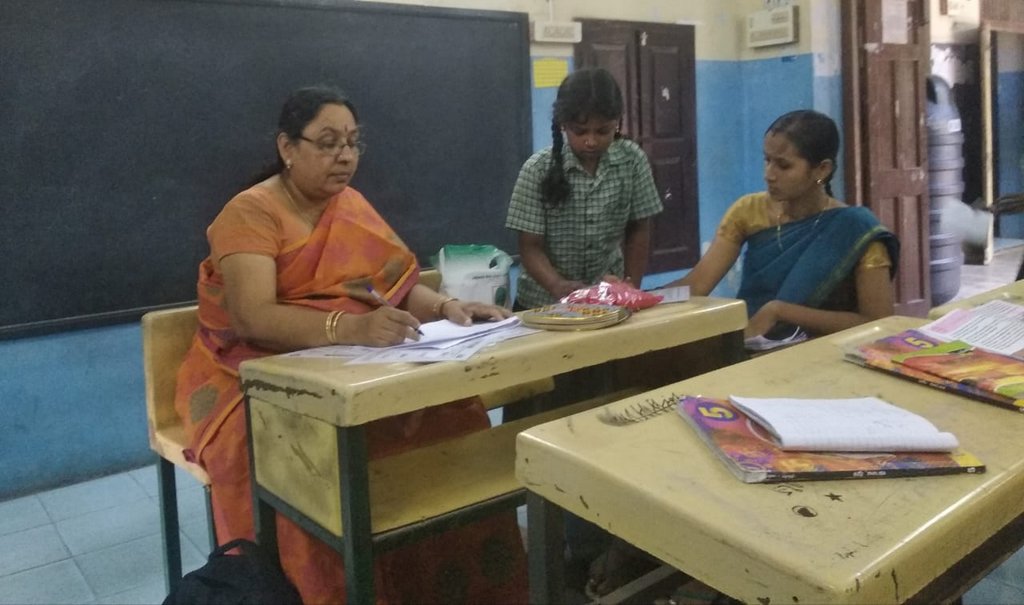
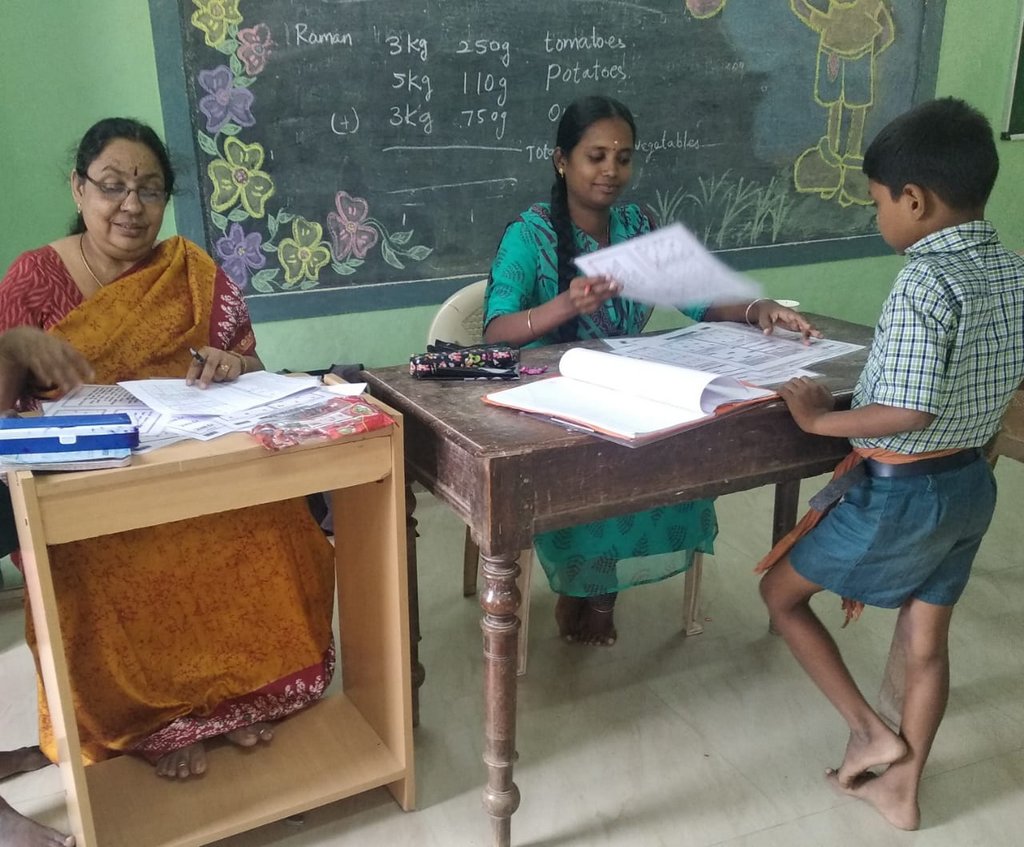
The assessments were conducted well at all the projects. The teachers have created the excel sheets for each school based on a template and from last year’s student data where applicable. After the assessments were completed, they entered the learning levels for the children. These files are being processed.
Data Collection
When we started the assessments in April 2015, we didn’t understand the learning levels of children at our supported schools and wanted to get a clearer idea. As we started getting data from various schools we started noticing that there is wide variation in the performance between various schools that we support. We couldn’t explain it just with the usual measures like teacher-student ratio, motivated vs unmotivated teachers, richer vs poorer area, etc. We decided to collect data to correlate against the performance of the children and the schools. Here are the data we started collecting over the years
2016-17
We got the school level data from DISE (www.schoolreportcards.in). The data included the following,
- Teacher-Student ratio.
- Strength of the school (which we also had from our own data) and the trend of the strength over the last few years.
- No of male and female teachers.
- RTE score for the school which rates the school on 10 infrastructure parameters.
- The percentage of SC and ST students. This to a large extent also reflects on how poor and remote a place is.
We continued with the same school level data collection for 2017-18 as well.
2018-19
In addition to the school level data, we also started gather data are the level of an individual student. In this year we started collecting the following student level data:
- Gender – boy or girl – We were collecting this even earlier.
- Student’s pre-school education – Did he attend a Balwadi, a Kindergarten (if so for one or two years) or none?
- Parent’s educations. What is the education level of the mother and father?
- Date of Birth which will tell us the student’s age.
- Height and weight. This will enable us to check if the children is at a correct height and weight for the age/class.
2019-20
We are continuing to collect the school level data as well as the student’s level data from the last year. In addition we have also started collecting a lot of additional student level data. This includes,
- Number of older and younger sibling the student has.
- Attendance percentage for the student.
- Distance of the student’s home from the school. We are not exactly measuring the distance. We classify the student as a. Coming from the same hamlet as the school, b. Coming from a neighbouring hamlet by walk or c. Coming from a more distant hamlet by vehicle (usual share auto or bus).
- Grade levels given to the child by the school in English Reading/writing, Tamil Reading/Writing and Maths. The schools in Tamilnadu are recording these and these are also validated by the BRTs (Block Resource Trainers).
- Is the student going for tuition?
- Is the student regular with his/her homework?
- Does the student usually have breakfast before coming to school? Note we can also correlate this data against the height and weight of the child to understand the impact giving breakfast at school may have on the child.
Result Analysis
We have not completed this yet for this year. We will update this report when this is available.
